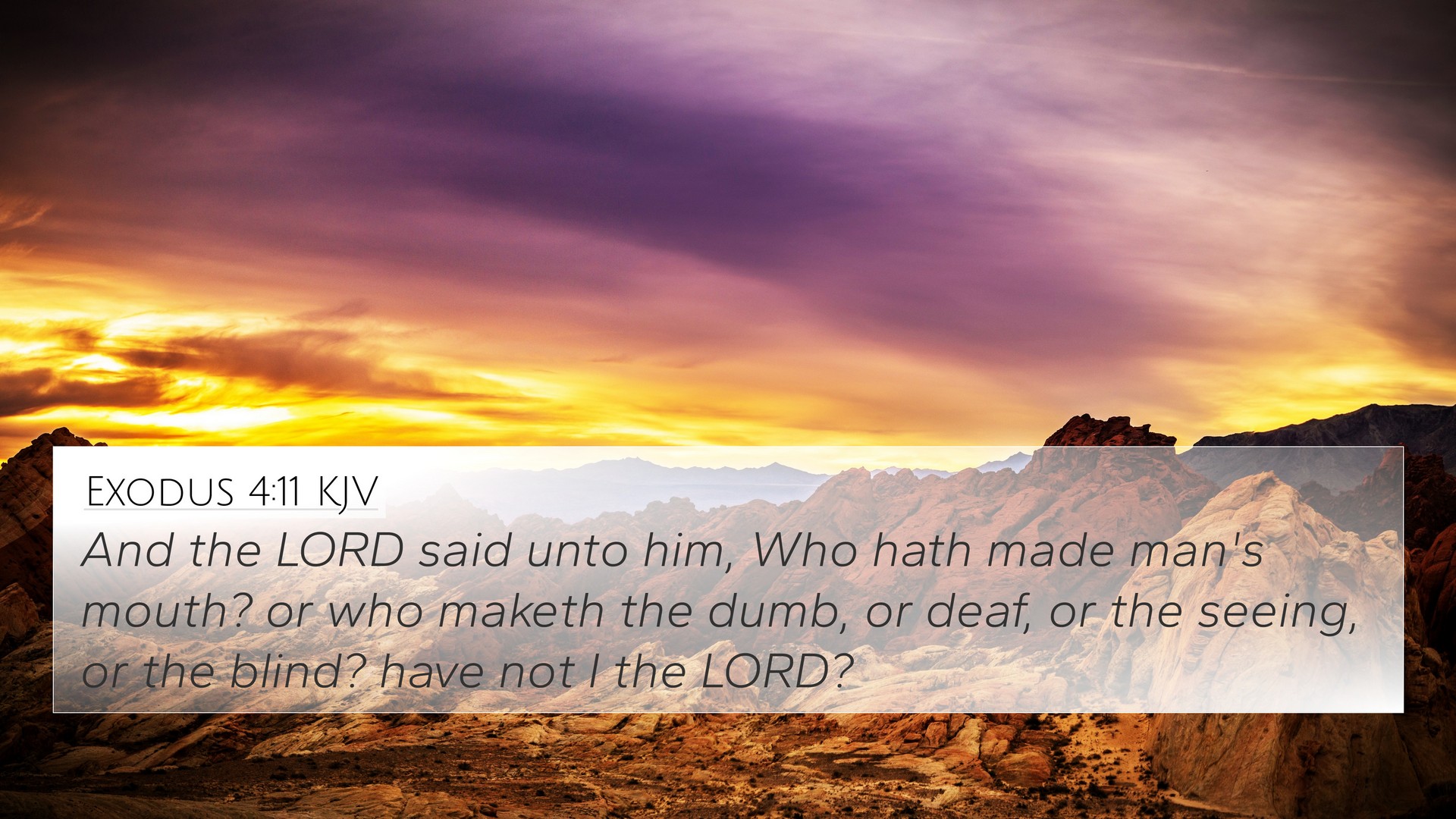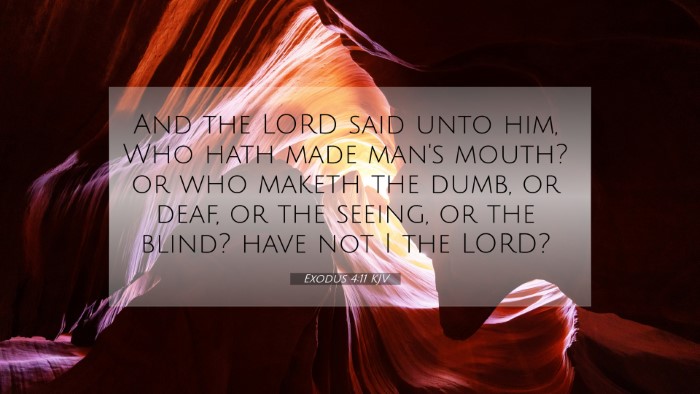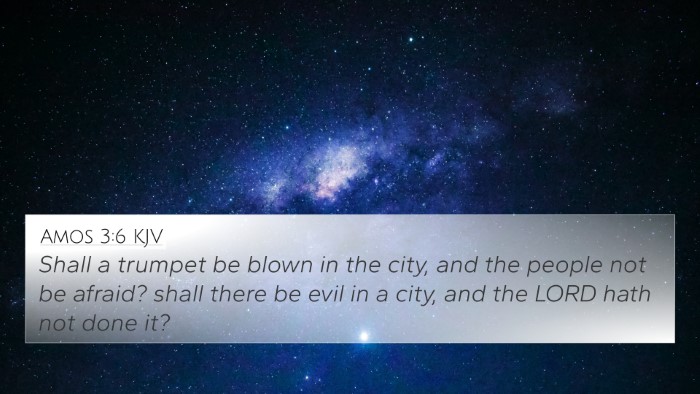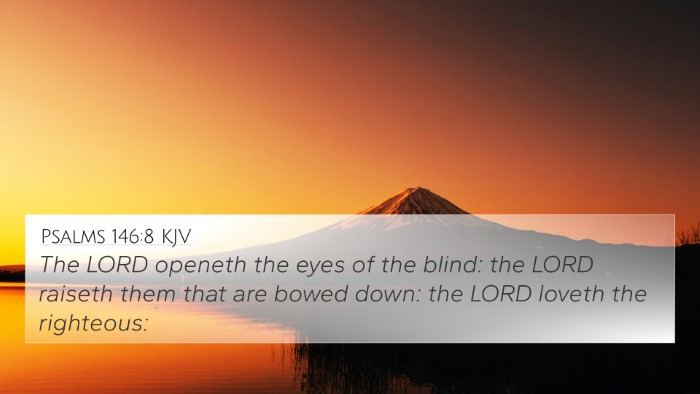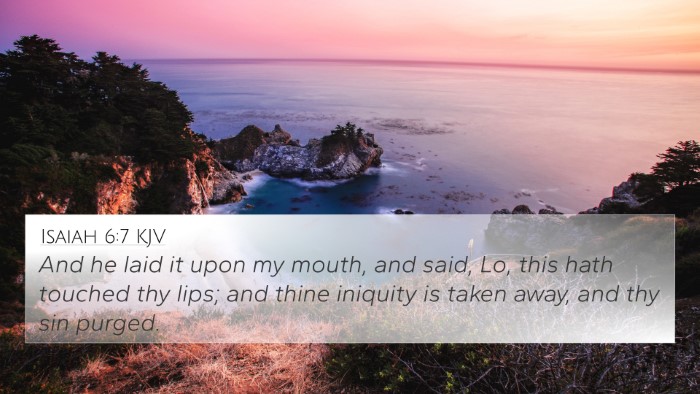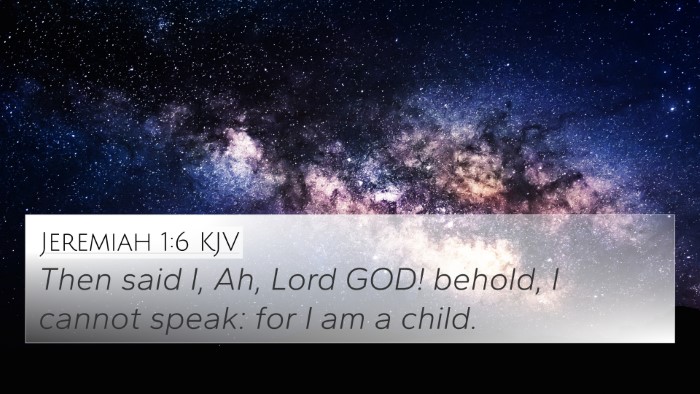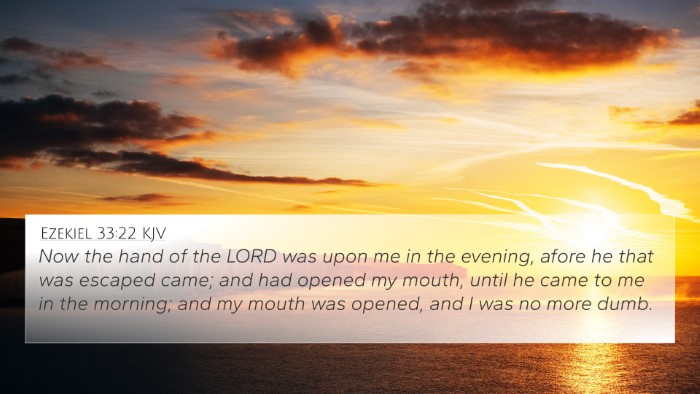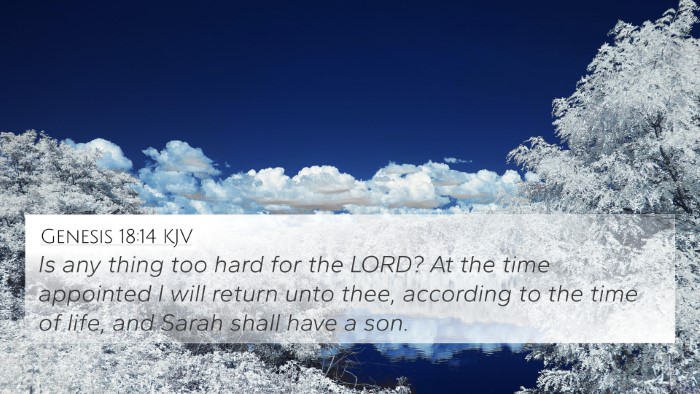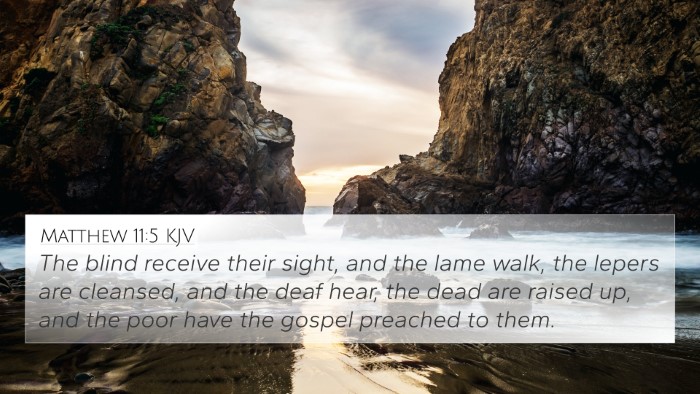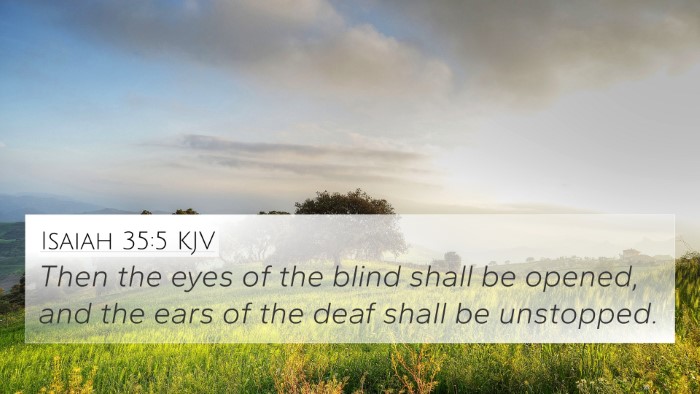Exodus 4:11 - Understanding the Verse
The verse Exodus 4:11 states, "And the LORD said unto him, Who hath made man's mouth? or who maketh the dumb, or deaf, or the seeing, or the blind? have not I the LORD?" This verse captures a moment of divine reassurance and emphasizes God's sovereignty over human ability.
Commentary Summary
This verse is part of the narrative where Moses hesitates to take on the mantle of a leader, expressing concern about his speaking abilities. Several renowned commentaries provide insights into the meaning and significance of this verse.
-
Matthew Henry:
Henry highlights that God's response to Moses' concerns is profoundly profound. The Lord is essentially reminding Moses that He is the creator of all, including those who are unable to speak or hear. This serves not only as an encouragement but also as a rhetorical question aimed at reaffirming God's omnipotence.
-
Albert Barnes:
Barnes comments on the implications of God's statement regarding man's mouth and faculties. He notes how this reflects God's almighty power and purposeful design in creation, implying that if God creates all, then He can also empower Moses to fulfill His divine plan.
-
Adam Clarke:
Clarke elaborates on the idea of divine commissioning. He states that God's calling involves equipping; when He chooses someone for a task, He also provides the necessary tools. Clarke emphasizes the overarching theme of reliance on God’s strength rather than human limitations.
Cross-References
Exodus 4:11 connects with several other Biblical texts that underscore similar themes of God's sovereignty, human capability, and divine calling. Here are some notable cross-references:
- Psalm 139:13-16: This passage speaks to God's role in creation, emphasizing that He is intimately involved in the formation of every person.
- Jeremiah 1:6-7: Here, God reassures Jeremiah about his calling, indicating that He knows the individual’s capabilities better than they themselves do.
- Matthew 10:20: In this New Testament reference, Jesus shares the promise that the Holy Spirit will speak through His disciples when they are brought before authorities, echoing the assurance given to Moses.
- Acts 7:22: This verse references Moses' education and preparation, indicating that God equips those He calls.
- 1 Corinthians 1:27-29: Paul writes about God choosing the weak things of the world to confound the wise, reinforcing the idea that human limitations do not hinder God's plans.
- Romans 8:31: This verse poses the rhetorical question, “If God be for us, who can be against us?” echoing Moses’ concerns about speaking before Pharaoh.
- Isaiah 6:5-8: Isaiah’s vision of God is accompanied by his initial feelings of inadequacy, yet God purifies him for service, aligning with the theme of divine enablement.
Interpretative Insights
In analyzing Exodus 4:11 through various commentaries and cross-references, we can glean several important lessons:
- God's sovereignty: The verse underscores that all abilities, including speech, originate from God. He has the power to enable and empower according to His purpose.
- Human limitations: It reminds believers that feelings of inadequacy do not disqualify them from service. God's calling often occurs in the context of our perceived weaknesses.
- Encouragement in calling: Just as God reassured Moses, believers can find comfort in knowing that when He commands an action, He equips them to accomplish it.
- The importance of trust: Trusting God in the face of human limitations aligns with a broader theological understanding that reliance on God fosters spiritual growth and empowerment for His mission.
Thematic Connections
This verse touches on several significant themes found throughout the Bible, emphasizing the interconnectedness of various scriptures:
- God's Creative Authority: Similar themes are found in Genesis 1:26-27, where God declares His sovereignty in creating humankind.
- Divine Commissioning: Instances of individuals expressing hesitance in their God-given tasks can be found throughout the Old and New Testaments, including the call of Gideon in Judges 6:15.
- Empowerment for Service: Scriptures such as 2 Timothy 1:7 remind us that God provides the spirit of power, love, and sound mind to those He calls.
Conclusion
Exodus 4:11 serves as a powerful reminder of God’s control over creation and His ability to enable those He calls for His purpose. Through cross-references and commentary interpretations, we can see the holistic view of God’s sovereignty and the importance of human reliance on divine assistance. This verse reassures believers of both their value and God's unwavering presence, even amid doubts and challenges.
